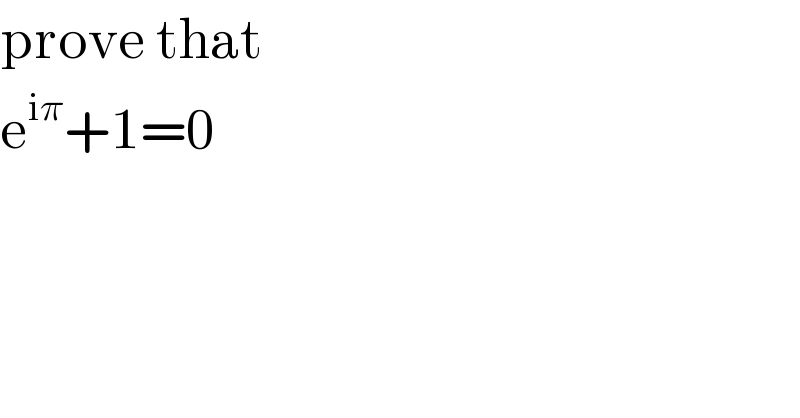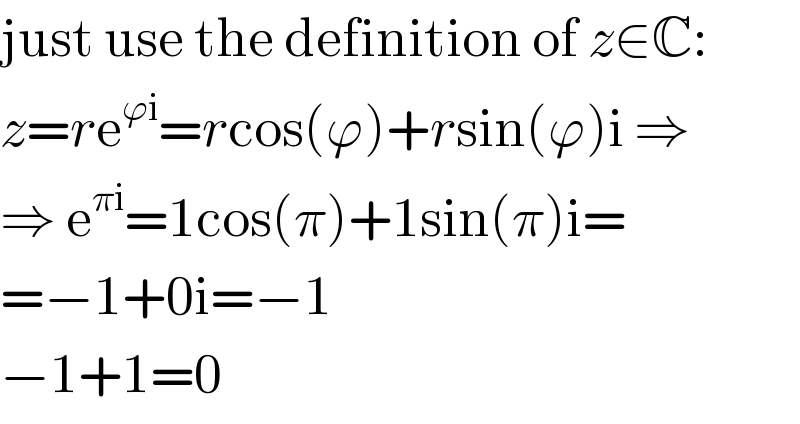Question Number 33496 by malwaan last updated on 17/Apr/18

$$\mathrm{prove}\:\mathrm{that} \\ $$$$\mathrm{e}^{\mathrm{i}\pi} +\mathrm{1}=\mathrm{0} \\ $$
Answered by MJS last updated on 17/Apr/18

$$\mathrm{just}\:\mathrm{use}\:\mathrm{the}\:\mathrm{definition}\:\mathrm{of}\:{z}\in\mathbb{C}: \\ $$$${z}={r}\mathrm{e}^{\varphi\mathrm{i}} ={r}\mathrm{cos}\left(\varphi\right)+{r}\mathrm{sin}\left(\varphi\right)\mathrm{i}\:\Rightarrow \\ $$$$\Rightarrow\:\mathrm{e}^{\pi\mathrm{i}} =\mathrm{1cos}\left(\pi\right)+\mathrm{1sin}\left(\pi\right)\mathrm{i}= \\ $$$$=−\mathrm{1}+\mathrm{0i}=−\mathrm{1} \\ $$$$−\mathrm{1}+\mathrm{1}=\mathrm{0} \\ $$
Commented by malwaan last updated on 18/Apr/18

$$\mathrm{thank}\:\mathrm{you}\:\mathrm{so}\:\mathrm{much} \\ $$
